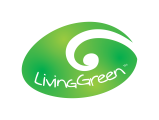With the rapid growth of natural and eco products on our shelves, one Kiwi manufacturer is urging consumers to be careful about what they buy and to check labels thoroughly.
“There’s a lot of misleading claims being made in this area and we want people to trust in the products they buy,” says Living Green, the only cleaning range in New Zealand to be inspected and approved by what he believes to be the toughest certification authority in the world, the United States Natural Product Association (USNPA). www.livinggreen.co.nz
“We spent five years researching and developing Living Green and are the first company in New Zealand to get the USNPA certification for our entire range. It took us nearly a year and 100kg of paperwork to get their seal of approval!”
Consequently, Living Green, NZ’s most natural cleaning range, knows what it’s talking about. The range was developed by biological chemist and inventor Nigel McLisky who created it because his daughter Sigrid suffered from skin and breathing allergies using traditional products so he set out to make cleaning products she could use every day. McLisky is an experienced innovator who co-founded Innovair, the company behind the best-selling Kiwi pest control product Robocan, which was sold to an American multinational company in 2008.
There’s a lot of confusion – some of which appears deliberate – about “green” products so he’s created a simple set of rules to help customers choose:
– It costs more to make products from natural and environmentally-friendly ingredients than chemicals and “non–natural” products so they will be a bit dearer.
– Endorsement labels are important. USNPA and BioGro certification are reputable and represent consumer safety at a high level.
– Organic is a term that’s often misunderstood. If a product has the BioGro label that means it has a minimum of 70 percent organic ingredients, which is the level that permits a manufacturer to use “organic” on the label.
– Biodegradable means a product will naturally break down over time. But the word has some “flexible” uses. For example, some polluting heavy metals are biodegradable – they just take hundreds of years to break down.
– Natural means no synthetics, manmade mixes or any solutions that can’t be put directly on the garden. World regulators police this word rigorously so if you see it on a supermarket product it has probably passed through a number of industry checkpoints. The higher the natural content, the better.
– Fragrances are often chemical cocktail additives unless specifically described as natural. If a product emphasises scent, check its label closely.
“People shouldn’t feel bamboozled when doing their shopping. They should be able to easily buy products that they know will work without harming their family. That’s why we launched Living Green,”
Sales of retail products in the “eco” category are booming, increasing by more than 13 percent in the last quarter of 2018, while non-eco products dropped by 4 percent.
Key points:
Living Green – highly-effective formulae that give your home, clothes and dishes a powerful clean. With natural enzymes, no added dyes or harsh synthetic chemicals. That means Living Green products are safer for your family and the environment.
Made in New Zealand, not tested on animals, recyclable, GE Free.
Available exclusively at Countdown supermarkets nationwide.
All of Living Green’s products are certified to the highest standard – the United States Natural Product Association certification.
To view the full range, visit www.livinggreen.co.nz
